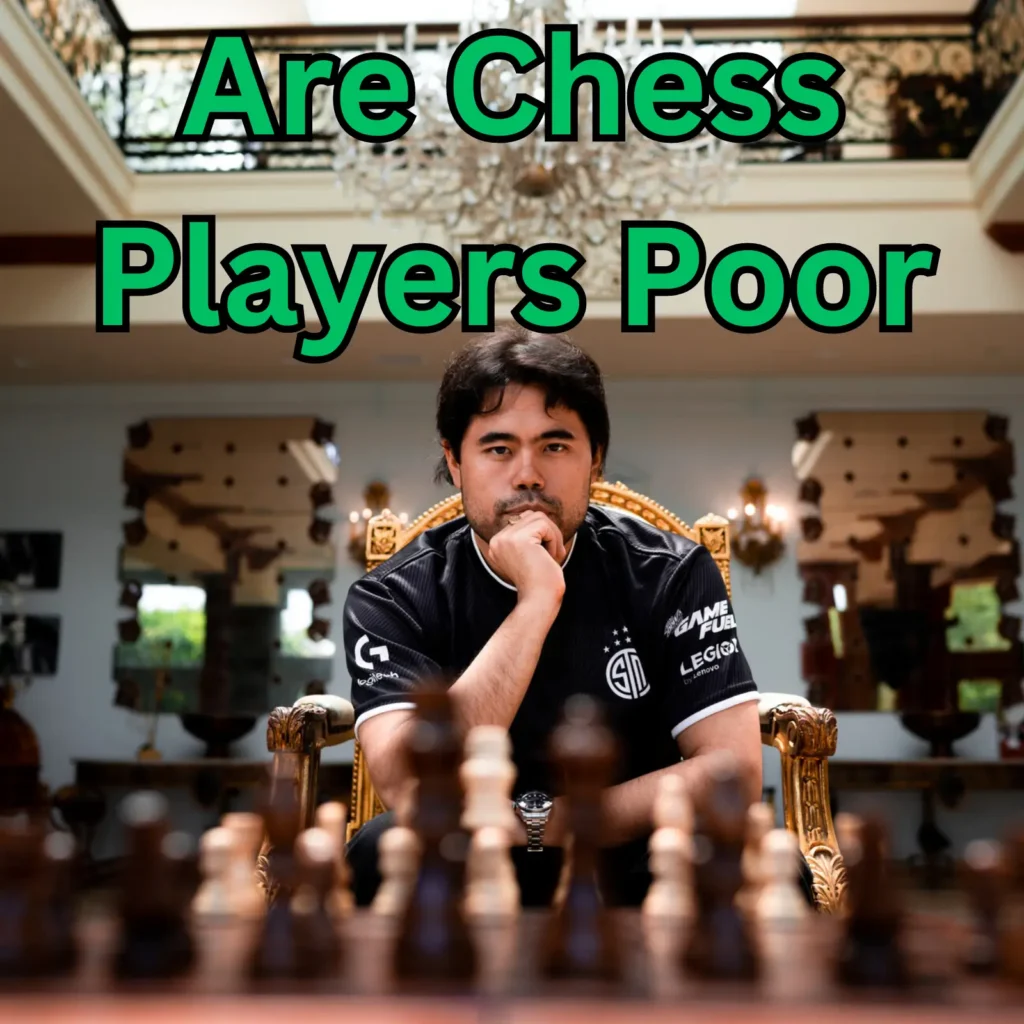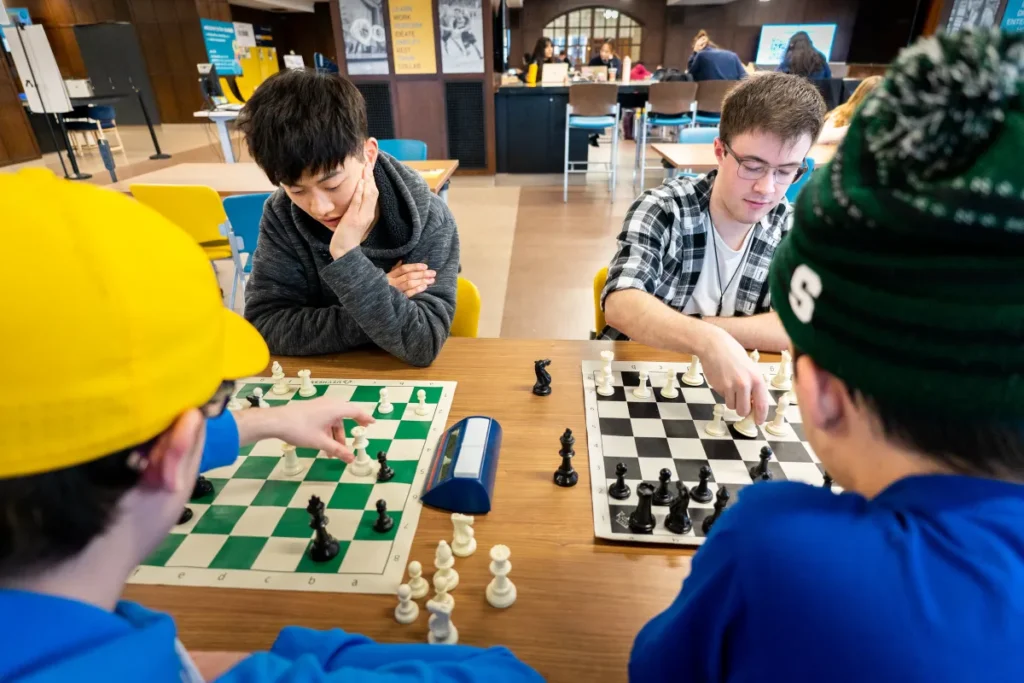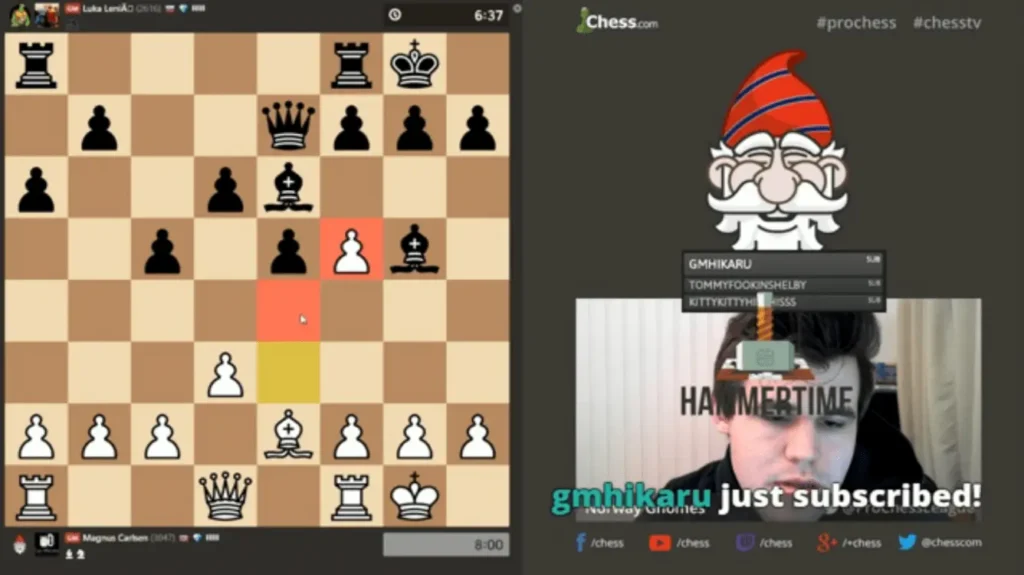
Introduction
Are chess players poor? This a question that a lot of people ask themselves. Usually, people talk about Doctors, Engineers when talking about high income professions but we usually don’t see people talking about how much your average chess professional makes.
There are a couple of reasons for this, first there are very little grandmasters and international masters in the entire world. In FIDE’s database in 2021 there were: 1739 Grandmasters, 3908 International Masters, 8362 FIDE Master and 1986 Candidate Masters. So, in total there were only 15,767 titled players back in 2021.
The second reason is that unlike more stable and mainstream jobs, going pro in chess can be similar to working freelance, it depends on your skills and your marketability as a person too, so the ranges can vary by a lot.
Let’s elaborate more on how much money do these guys make depending on their skill and we’ll also include a section talking about how difficult it is to become a chess pro at the end.
How Much Money Do Professional Chess Players Earn
Chess players can make some decent money, but in general only the best of the best can become millionaires. Players like Viswanathan Anand, Magnus Carlsen and Fabiano Caruana can make millions in a single year from tournament results, endorsements, appearance fees and sponsorships deals.
But, for the vast majority of chess pros, you can expect to make between $20,000 to $100,000 depending on things like: your skill level(rating), your country and some luck for a couple of tournament wins!
As you can see from these numbers you could be making close to minimum wage If you’re in the lower tiers of the rankings, in which case it would be better for you to work in something else and play chess for fun (even if you take it quite seriously).
In fact, some of the strongest players in the world still decide to stop playing competitively because of the stress and effort required to climb to the top of the rankings. Just recently Ding Liren the newest world champion said this after winning his title “[Woody Allen] says that the English phrase ‘I love you’ doesn’t always express that you love someone very much, that there should be a higher expression than that. In my case, happy is not enough, a stronger word is needed. It’s a huge liberation.”
Players like Levy Rozman (known online as GothamChess) have become extremely popular online and probably make much more from their streaming and YouTube careers than by playing in chess tournaments, and even if he made slightly less at least it’s a much more comfortable job at least for Levy Rozman.
The Top: Magnus Carlsen
Magnus’s case is a bit unique; he is widely recognized as the best player of his generation and some people go so far as to say that he is the current chess GOAT (Greatest of All Time). This means that Magnus is the clear number one when it comes to chess as a career.
He is not only the best player and has won a multitude of tournaments ever since he was a teenager, he also has a bunch of deals with companies like Unibet, Simonsen Vogt Wigg, Arctic Securities, Mastercard, Skilling, and Instaforex.
Elite Grandmasters (2700+)
I’m going to define Elite Grandmasters as every player that has either 2700 FIDE rating or more, and if there are not enough then just take the top 50 players in the entire world.
These “Super GMs” are the best players in the world, this is where the pool of contestants for the world championship come from. These guys can expect to make more than $100,000 a year on average if they play their cards right. A player of this level can expect to be a top contender in most global tournaments and all he needs is a single win to get him north of 100k per year.
Player marketability also can make these players earn more money, just like tennis and pretty female tennis #1’s if you’re good at selling merch you will get those big sponsorship deals by leveraging your chess skill combined with your influence.
International Master or More (2400+)

Unlike Elite Grandmasters these players can’t be considered contenders in every tournament they attend, they might need to play in more local and less profitable tournaments that stronger players will just not even bother with. This means they can earn a decent living but they’re not going to be swimming in cash.
You can expect most of these players pay to vary wildly depending on their results, so they will start coaching and offering one on one teaching sessions to supplement their income. These players can earn between 40,000 to 100,000 (or more if they go into streaming and are charismatic or beautiful).
Everyone else
For everyone else chess is going to be a difficult career choice, it’s not impossible to make money at this level but you will probably need to coach and teach most of the time, with only occasional appearances in local or international tournaments depending on your rating.
If you want some numbers then we are going to go with $10,000 to $40,000 for most players in the 1900-2400 range. Everyone else probably shouldn’t go into chess as a career unless they live in a very low cost of living country and are willing to coach full time.
Special Case: Streamers

Unlike competitive chess, streaming can be a super lucrative way for strong chess players to make money, actually even the not elite chess players can still make a lot of money just like a normal streamer would.
GothamChess is a good example. Levy Rozman has seen explosive growth in 2023 and is probably making $1m a year or more. His peak rating was 2421.
BotezLive is another example, Alexandra Botez had a peak rating of 2092 back in 2016, not enough no make that much money but by becoming a streamer she and her sister now make about $250,000 to $500,000 a year probably just from YouTube and twitch.
How Long Does It Take to Learn to Play Chess Well
Most chess grandmasters started as early as 4 years old, but some started a bit later at 8 or 12 even. But most started really young and had extreme talent that was obvious at the time.
Bobby Fischer started playing at just 6 years old, he learnt to play by himself using a chess set that his sister bought, by age 13 he was already winning tournaments and won a total of 8 US Championships by age 14. So in Bobby’s case he just needed around 6 or 7 years to become proficient, but he improved until he was 28 years old.
In general a pro chess players can expect his chess rating to accurately mirror his brain’s peak ability at the time, most studies show that our brain stops developing at around 25-28 years old and In the case of chess, most player’s can maintain this ranking up into their 60s it depends on their dedication and their brain’s health (which is linked to their overall health).
This is why Bobby Fischer had such a short career at the top, he was famously a controversial player and suffered from psychosis after his 1972 win, by 1974 he was no longer the same player and went into obscurity.
Conclusion
As you can see, becoming a chess professional is extremely hard. Making money from chess is not easy and you need to be one of the best players in the world just to get a piece of this money. Not only it requires godlike talent to succeed, you also need discipline and motivation to keep you going and to be brave enough to play against the best players in the world jus to earn a living.
If you were to ask me, it is way easier to become a doctor or an engineer than it is to make money from playing chess, coaching players or teaching. This applies to a lot of competitive activities, like sports and to a degree singing, dancing, the list goes on.
Most people can dedicate their free time to chess as a hobby and not have to face the stress of playing competitively, they can get a more comfortable job and only use the game as well, a game. Only special people should really go all in on chess, and those people need to be aware of how difficult it is to get to the top.
This is not to discourage anyone from trying their best, but being realistic is the best approach, set achievable goals and try to improve your rating without going crazy with ideas about living off coaching and teaching if you’re not willing to make some compromises.
Related
References
- Much Do Chess Players Make in 2022? You’ll be SHOCKED
- What is a Chess Grandmaster? And How Do They Become One?